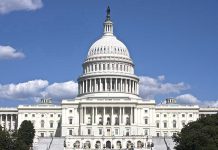
When a judge—entrusted to uphold society’s highest ideals—winds up unconscious behind the wheel, facing an OWI charge, the gavel of justice suddenly trembles in the public’s hand.
Story Snapshot
- A high-ranking Iowa judge was charged with Operating While Intoxicated after driving the wrong way on a highway.
- Multiple 911 callers reported the incident, and officers found the judge unconscious in her vehicle.
- The event has ignited debate about judicial accountability and public trust in the legal system.
- The case raises serious questions about equal treatment for those in positions of authority.
Judge’s Arrest Disrupts Public Trust in the Judiciary
In early November 2025, a powerful Iowa judge’s career—and the reputation of the court she served—was upended when a string of 911 calls reported her vehicle barreling the wrong way down a highway. Law enforcement, acting on the urgent warnings, discovered her slumped unconscious behind the wheel. The subsequent arrest and OWI charge did more than make headlines; it sent shockwaves through the legal and civic communities, exposing the human frailty behind the black robe and reigniting the decades-old debate over whether those who judge others are held to the same standards as the rest of us.
The gravity of the situation was amplified by the judge’s status. Ordinarily, OWI offenses provoke concern and condemnation, but when the accused is a sitting judge—someone who has presided over cases involving impaired drivers—the hypocrisy is impossible to ignore. The image of a lawmaker becoming a lawbreaker is more than a tabloid-ready scandal; it’s a catalyst for a hard look at the structures of accountability that govern the judiciary. Public trust in the legal system, already fragile in many communities, now faces a fresh test.
The Incident and Its Immediate Fallout
Witnesses described the terrifying sight of a car moving against traffic on a major Iowa highway, a scenario that could have resulted in tragedy for any unsuspecting driver. Police arrived to find the judge unresponsive, an indicator of severe intoxication and a stark reminder of the dangers impaired driving poses, regardless of the perpetrator’s professional stature. The arrest was swift, and news of the incident spread rapidly, with media outlets and the public alike demanding answers—and consequences.
The judge’s subsequent silence, combined with the lack of immediate comment from judicial oversight bodies, has only heightened the sense of unease. In the court of public opinion, the scales tilt quickly, and the expectation is clear: the law must be applied without fear or favor. Calls for transparency and accountability have grown louder, as citizens wonder whether the same rules truly apply to all.
Historical Precedents and the Accountability Dilemma
This is not the first time a public official has faced such charges. Past incidents—including the 2008 drunk driving arrest of a Racine County police chief—demonstrate that when authority figures violate the law, repercussions can follow swiftly and publicly. However, the outcomes vary, often depending on the visibility of the case and the perceived willingness of oversight bodies to act decisively. These precedents serve as reminders that while the law is meant to be blind, in reality, the powerful sometimes receive gentler treatment than the average citizen.
In Iowa, as in other states, judicial officials are bound by strict ethical codes. The expectation is that those who dispense justice must themselves be beyond reproach. When judges falter, disciplinary actions can range from suspension to removal from office. Yet, the opacity of many internal investigations and the slow pace of official responses often frustrate public demands for justice. The current case, with its high-profile defendant and dramatic circumstances, may become a bellwether for reform.
Implications for the Judiciary and Public Perception
The immediate consequences for the judge are severe: administrative leave, legal jeopardy, and a reputation in tatters. The broader impact, however, may be felt in the judiciary itself. Every incident like this chips away at public confidence, making it harder for courts to command respect and obedience. The judiciary’s legitimacy depends on the perception of fairness and integrity—qualities called into question whenever a judge becomes a defendant.
Long-term, this case could spur systemic changes. Advocates are already calling for enhanced oversight, including mandatory substance abuse education and screening for judges and other high-ranking officials. Legal scholars and ethicists argue that transparent disciplinary processes are essential—not only to punish wrongdoing but to demonstrate a commitment to the rule of law that extends from the courthouse to the patrol car. Meanwhile, the public, ever skeptical, will watch closely to see whether justice is truly blind, or merely squinting when it comes to its own.












